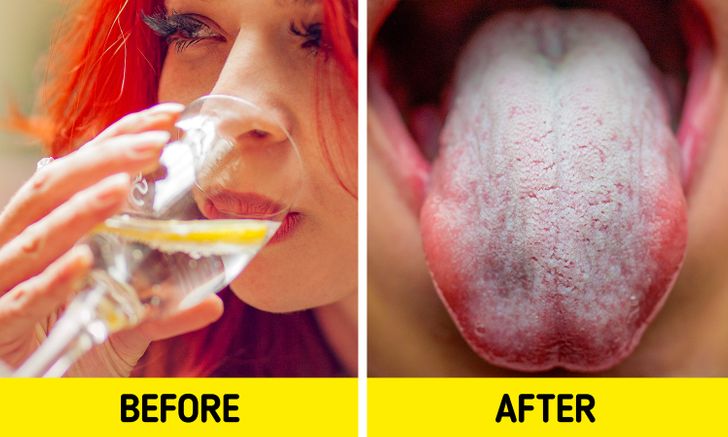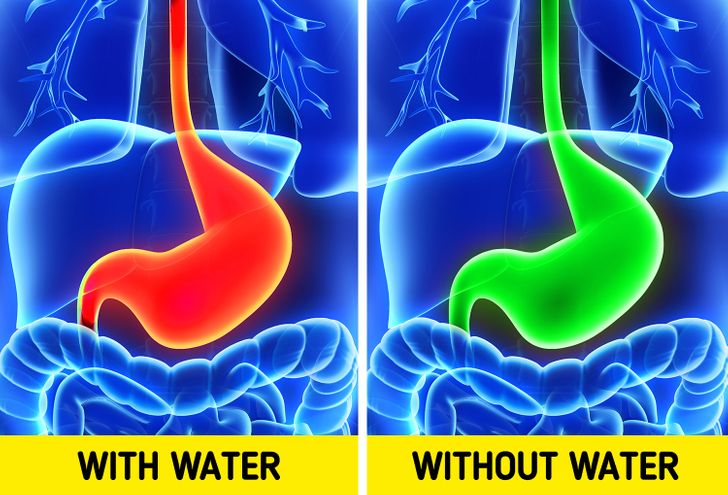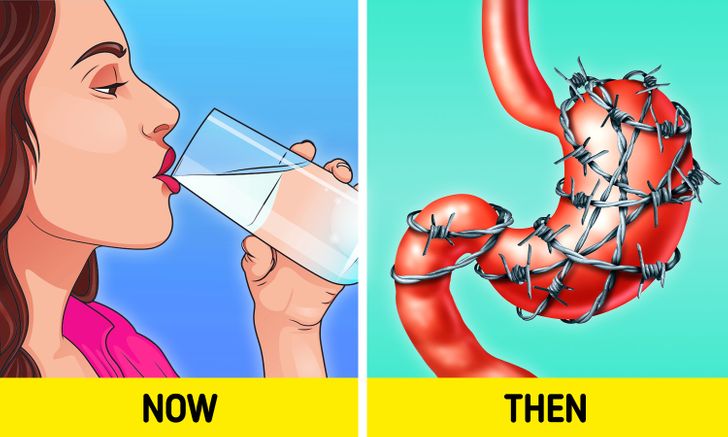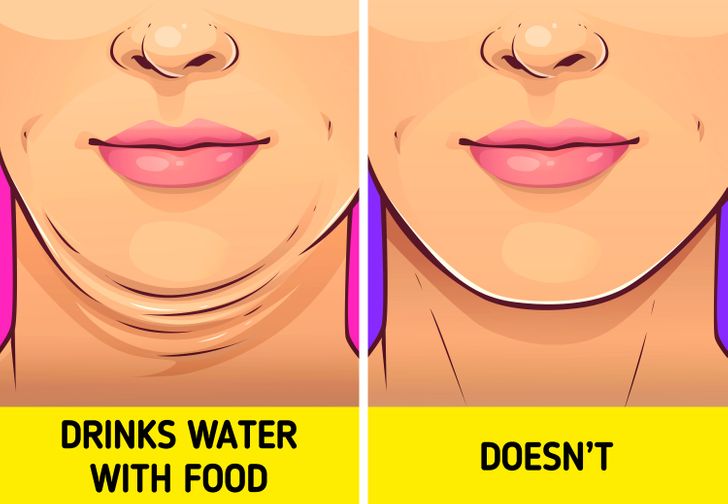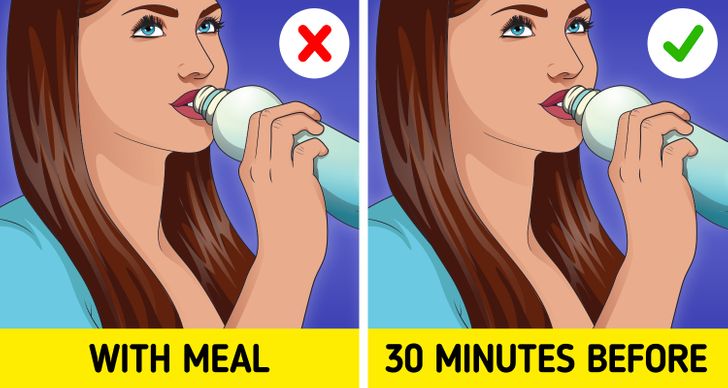I think the main reason why Japanese tend not to drink water with restaurant meals is that they don't want to seem "cheap". They'll prefer to order a drink that costs money, rather than eat their meal with free water.
Why People in Japan Don’t Drink Water With Meals
If you go to a restaurant in a Western country, you will likely receive a large glass of water with ice and lemon slices, but in Japan, you might only get a very small cup of water. The Japanese believe water can interfere with your “digestive fire,” making it more difficult for your body to digest a meal. And although staying properly hydrated is crucial for your overall health, downing glasses of water along with your meals may do more harm than good.
We at Bright Side are also used to sipping water during our meals. And we did our research to find out why the Japanese, who are part of one of the healthiest nations in the world, choose not to do so. You’ll also find some useful life hacks at the end of the article.
1. It may give you a dry mouth.
As contradictory as it may sound, having a glass of water with your meal can dry up your saliva. Some people like adding a slice of lemon to their water, which makes it an acidic drink that affects your saliva secretion. Because saliva serves as a healthy drink for your oral environment, having a dry mouth can lead to some unpleasant symptoms, including bad breath. Lemon water can also worsen certain health conditions, such as acid reflux, and can damage the enamel on your teeth.
2. It may harm your digestion.
3. It slows down nutrient absorption.
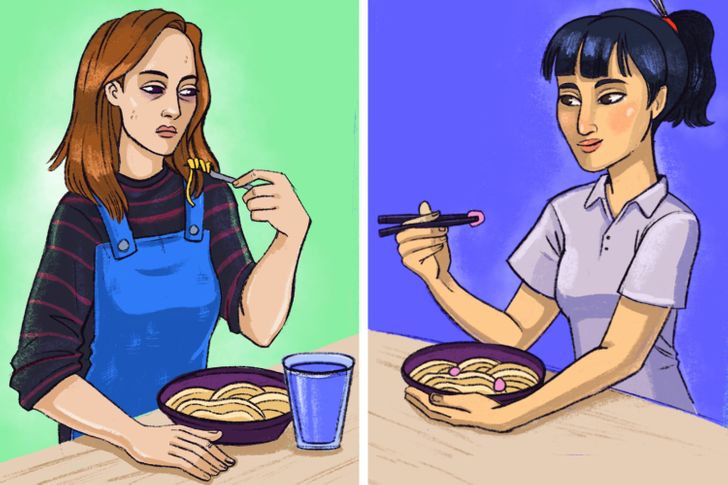
Because drinking water during meals dilutes your digestive juices, it affects the natural acidity level of your stomach. This negatively affects your digestive system and causes your body to absorb fewer vitamins and nutrients.
4. It may give you heartburn.
Having water with meals adds volume to your stomach and increases the pressure on it, much like a large meal would. This, in turn, can worsen certain health conditions and increase the risk of acid reflux. Because drinking water during meals causes your body to secrete fewer digestive enzymes, it can lead to a chain reaction of side effects, including heartburn.
5. It may cause weight gain.
Drinking water while you’re eating can also cause you to put on extra pounds. When your body can’t digest food well enough, it converts it into fat, making you gain more weight. Having water with meals can also cause your body to release more insulin into your blood, which increases your chances of storing fat in your body.
Bonus: how to avoid drinking water with meals
While it may be hard to resist the urge to drink water in between bites, here are some tips that can help you overcome it.
- Have less salty meals. Because salt tends to make you thirsty, it’s better to opt for foods that contain less sodium.
- Take time to chew your food. Well-chewed food is easier for your stomach to digest, and as you chew, your body produces more saliva, decreasing your urge to drink water.
- Drink water 30 minutes before your meal. Having water half an hour before a meal is one of the most effective ways to stay hydrated. It can also make you feel more full so that you end up eating fewer calories.
- Don’t eat in a hurry. If you’re having a quick snack on your way to work, chances are it will make you thirsty since you’ll feel the need to wash your food down with water.
Do you drink water while you eat? Can you eat an entire meal without having a glass of water?
Comments
Related Reads
Why Most Japanese Bathe in the Evening
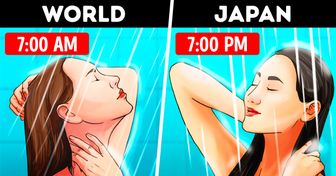
15 People Whose Vacations Turned Into Unscripted Dramas

13 Thanksgiving Dramas That Were Juicier Than the Turkey
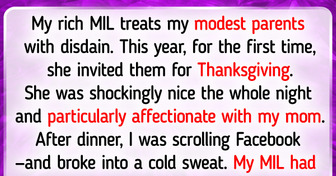
My Husband Missed Our Child’s Birth for a “Bigger Priority”
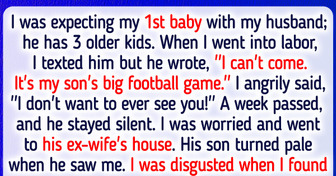
10 True Stories With Twists That Belong in a Bestseller

«I Think I Just Made the Biggest Mistake of My Life»

My Husband Disappeared, Leaving Me 8 Months Pregnant With His Baby
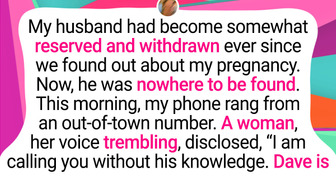
17 People Revealed What Became the Last Straw in Their Relationship

15 People Who Can Give Masterclasses in Quick-Wittedness
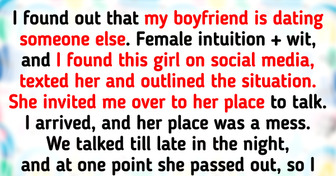
The Wife of My Ex Forced My 16YO to Babysit Their Newborn at Night—So I Took Matters Into My Own Hands

12 True Stories That Get Creepier and Creepier

My Husband Forbade Me from Buying My Daughter a Gift — Because “It’s HIS Money”

